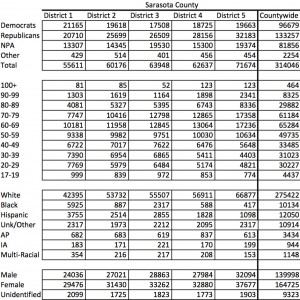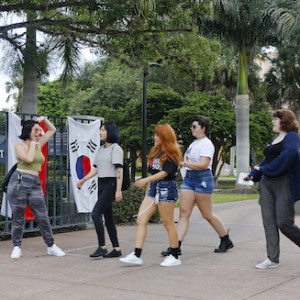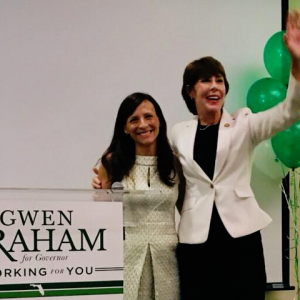Humanities on the Creative Coast
Guest Correspondence
SRQ DAILY
SATURDAY OCT 8, 2016 |
BY DONAL O'SHEA
Our region, a little corner of paradise, is graced with an astonishing array of arts and cultural organizations. We have eight professional theaters, an opera, a ballet and a symphony. We have other dance and music troupes, an extraordinary art museum and much more. These arts and cultural organizations are joined by an extraordinary array of research institutions and institutions of higher education and research.
Yet we often undersell ourselves. Or like Thomas of Becket, we yield to the last temptation and make the right case for the wrong reason. We celebrate the arts, citing their economic impact on our region. Never mind that they are an essential part of what makes us human.
And the humanities? The study of history, philosophy, religion and literature? They have few champions. Few willing to stick their hand up to insist they be a vital part of our regional discourse, of every arts and educational institution and of the events that they generate.
No one disputes the importance of the sciences, and no institution does more to educate future scientists than my own. Anywhere from 15 to 25 percent of New College graduates subsequently receive PhDs in mathematics and the sciences, a staggering proportion and by far the highest in the state. Only CalTech, Harvey Mudd, MIT and Reed are comparable. No one else is close.
A third of our students, however, major in the arts and humanities. They go on to become doctors and lawyers, entrepreneurs and business leaders. New College and our neighboring institutions get little credit for educating these students, who will emerge as important and influential citizens.
The steady drumbeat that only STEM matters has marginalized the arts and driven the humanities out of our public discourse. It has signaled to students that they should not take time to ask the big questions. What makes life worth living? What cost making a fortune, if you lose your family or your soul? Is there a God and, if so, is mine the same as yours? For those questions won’t get them a job.
In this environment, the decision of the Andrew W. Mellon Foundation, one of the nation’s largest and most respected foundations, is most welcome. Their grant of $750,000 will fund an initiative that will allow New College and the universities in the Consortium of Colleges on the Creative Coast to connect with one another and with local arts organizations. It drives a stake in the ground asserting the importance of the humanities. And it will immensely strengthen the intellectual life in our region.
The disciplines in the humanities provide the intellectual tools that allow us to put ourselves in another’s place. They allow us to understand and communicate meaningfully with others and, not incidentally, to talk about the direct experience the arts afford. Employers call out for graduates with emotional intelligence and “soft” skills. But there is nothing “soft” about soft skills. The humanities teach precision of expression and discipline of thought. And those in turn allow us to deal with complexity, and with a world in which two seemingly opposite statements can both be true.
For a wonderful panegyric on the utility of the humanities that recently went viral, see Professor Scott Newstok’s article “How to Think Like Shakespeare.”
Our founding fathers understood the importance of the humanities, and their mastery of them suffuses our nation’s founding documents. In contrast, what do Bashar al-Assad, Mahmoud Ahmadinejad, Sherif Ismail and many other Middle-Eastern leaders share? They have STEM educations, and not much else—they are technocrats, often doctors or engineers. Can you imagine one of them, or any narrowly educated technocrat, drafting the Declaration of Independence?
One of the strengths of American higher education has been its insistence on building a foundation of broad learning, and that students study the humanities as well as the sciences, deferring specialization to graduate school. To abandon this is to diminish ourselves, our children and our society.
Donal O'Shea is president of New College of Florida.
« View The Saturday Oct 8, 2016 SRQ Daily Edition
« Back To SRQ Daily Archive








